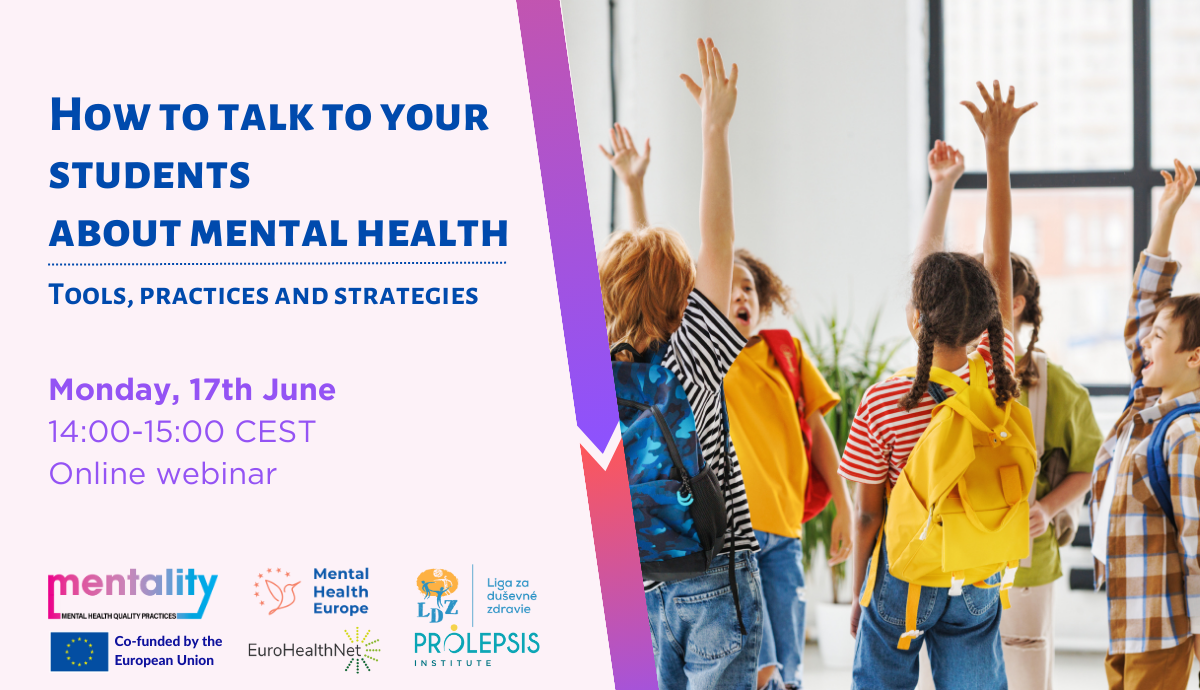How to talk to your students about mental health: tools, practices and strategies

Introduction
Since the Covid-19 pandemic, children across Europe have been experiencing increasingly worrying amounts of stress, anxiety and mental health problems, highlighting the significance of proactive and comprehensive solutions. In the current mental health crisis, youth’s struggle for well-being requires immediate attention and action as we navigate the complexity of contemporary culture.
A Hopeful, Healthy, and Happy Living and Learning Toolkit, co-authored by PS Centre Technical Advisor Ea Suzanne Akasha and clinical psychologists Mark Kucklow and Jonathan Morgan, is a guide designed to facilitate support for children, parents/caregivers and teachers affected by the COVID-19 pandemic – and proved to be impactful in improving youth mental health in diverse contexts as well.
During this webinar, the two organisations Prolepsis (Greece) and Liga for Mental Health Slovakia will share their experiences in implementing the Toolkit/Guide for Teachers in two different national contexts. Participants will discover the Guide for Teacher’s main features, implementation challenges, and future possibilities, all with one common goal: supporting the mental health of children.
Objectives
This webinar, targeted at teachers and educators, will aim to:
- Present the A Hopeful, Healthy and Happy Living and Learning Toolkit/ Guide for Teachers;
- Outline strategies for integrating mental health literacy into the educational framework;
- Reflect upon how to adapt the Guide for Teachers to diverse cultural contexts within European educational settings.
- Find common solutions to challenges and barriers that may impede the promotion of mental health literacy among children.
- Share tools and practices to empower children in managing their mental health and promote their emotional awareness, resilience, and personal development.
About Mentality
This webinar is developed as part of the MENTALITY project. MENTALITY pilots established European promising practices targeted at children, healthcare and other care workers, people with pre-existing mental health problems and psychosocial disabilities, migrants, and service providers.
The project establishes a path for successful and sustainable transfer and adaptation of practices in participating countries that will also lead to in-country upscale and further future implementation in other EU countries.
Stay connected
Get our latest news, personal stories, research articles, and job opportunities.